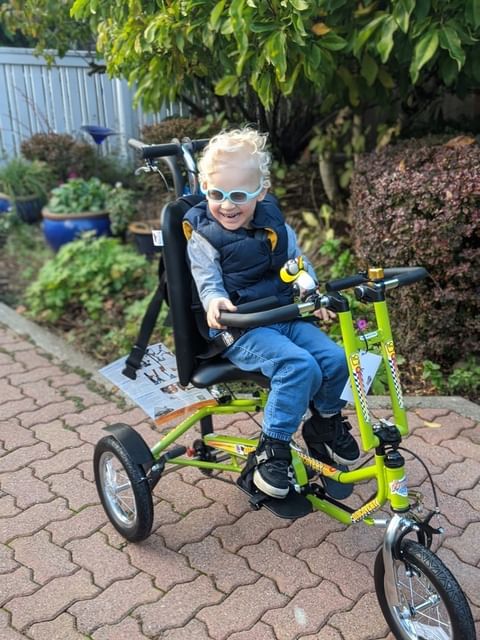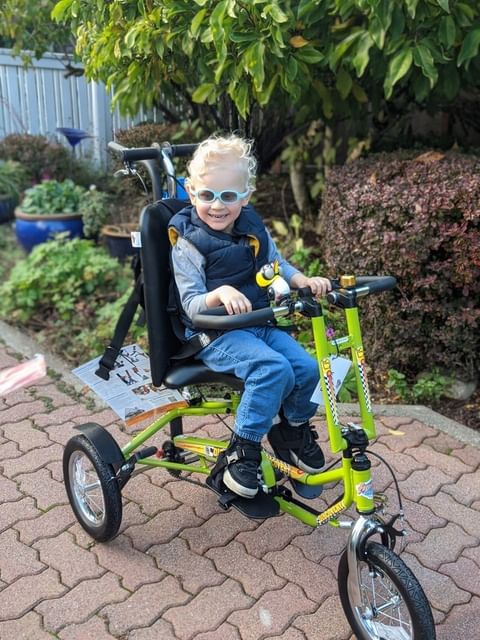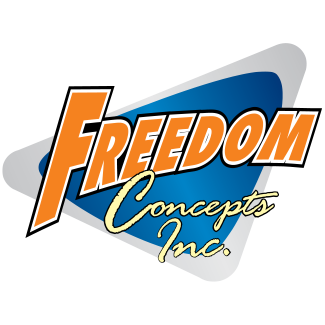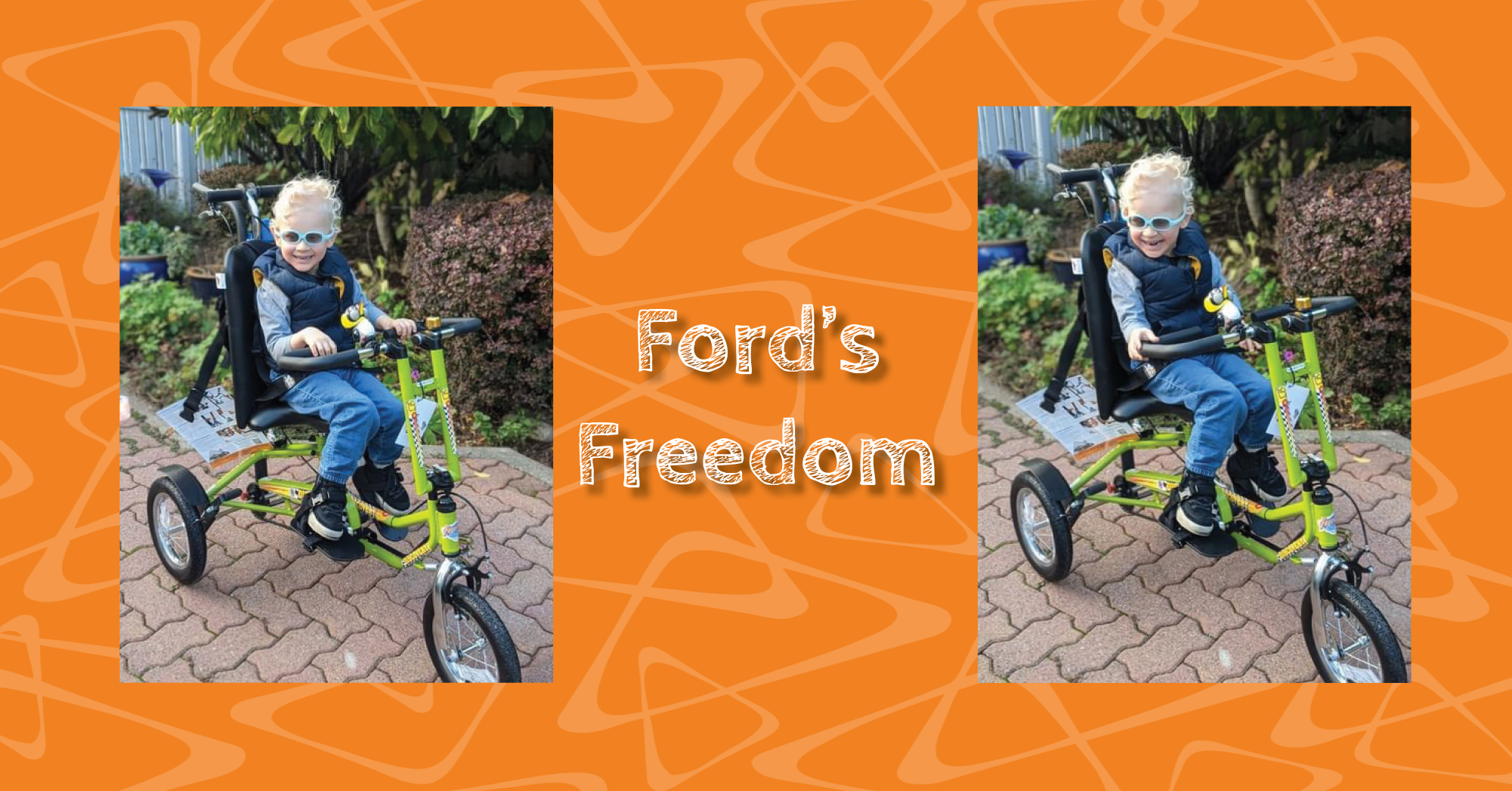When Effie Parks’ five-year-old son Ford was diagnosed with CTNNB1 syndrome when he was 16 months old, he was one out of only 30 people in the world with it.
“Now there are about 200 other kiddos from around the world,” Effie said. “It was found in 2012, so all the patients popping up are pretty young, there aren’t a lot of adults to look towards to see what it’s going to be like in the future.”
Ford is not creating a protein called beta-catenin, a protein that helps cells grow and reproduce. This causes global developmental delay, sensitivity to light, a lack of pigment, hypotonia, dystonia, and eye problems. Ford is non-verbal, and can’t sit, crawl, or walk.
Effie said Ford’s positive attitude, regardless of what is happening, makes everyone better.
“It doesn’t matter what hard thing he has to do that day, whether it’s a medical procedure or working on physical therapy, he’s just motivated and forgiving, and he always wants to have fun,” Effie said. “Even if everyone is having the worst day, Ford can just start cracking up and change the game.”
When Ford was diagnosed with CTNNB1 syndrome, Effie started a podcast called Once Upon a Gene, which focuses on raising children with disabilities and rare disorders.
“At the time, there were only a couple of podcasts on the topic, and everything was either really dark and dreary or stuff that wasn’t really talking about rare disease kids like Ford,” Effie said. “I literally Googled ‘How do I start a podcast.’”
Effie said she wanted to make the path she walks a little easier for another parent by telling her’s and others’ stories, sharing resources, and discussing what works and what doesn’t.
Through Once Upon a Gene, Effie has met many families who understand what she’s going through.
“I found this community that is so supportive,” Effie said. “They’re the most inspirational, hard-working parents I’ve ever known in my life.”
Many of these families had Freedom Concepts bikes, and Effie felt Ford could benefit from one of his own. Ford has now had his DCP 12 adaptive bike for over a year, and Effie said it’s his favorite thing.
“After he gets out of school after a long day I ask him if he wants to do the regular things he normally does and he only wants to ride his bike, he just loves the wind in his face,” Effie said. “Using his wheelchair is a different experience because it’s more work, whereas with the bike he just gets to be silly.”
Effie said she also feels Ford has more of a sense of independence when he’s riding his adaptive bike than when he’s in his wheelchair.
A few weeks ago Effie changed the steering on the bike to unlocked, which allows Ford to steer the bike independently.
“When he realized he could go in circles on his own and change directions, it was like a whole new world opened up again,” Effie said. “I phone my husband every time Ford is on the bike because every single day, he’s stronger and faster.”
Ford has dystonia in his legs, which causes them to be extremely stiff. Effie said this makes tasks like getting him dressed, putting his shoes on, or getting him in his car seat difficult.
“Something about the freedom and the fun in the bike makes it so he can bend his legs easily,” Effie said. “He gets the pattern going, so his body just starts doing that rather than locking up. He’s never moved his legs like this, ever, and he’s totally getting stronger in his legs.”
Along with increased strength and movement in his legs, Effie said Ford has been sleeping better, which is how she knows he’s getting a good workout.
Click here to learn more about Freedom Concepts adaptive bikes.

“Something about the freedom and the fun in the bike makes it so he can bend his legs easily,” Effie said. “He gets the pattern going, so his body just starts doing that rather than locking up. He’s never moved his legs like this, ever, and he’s totally getting stronger in his legs.”


